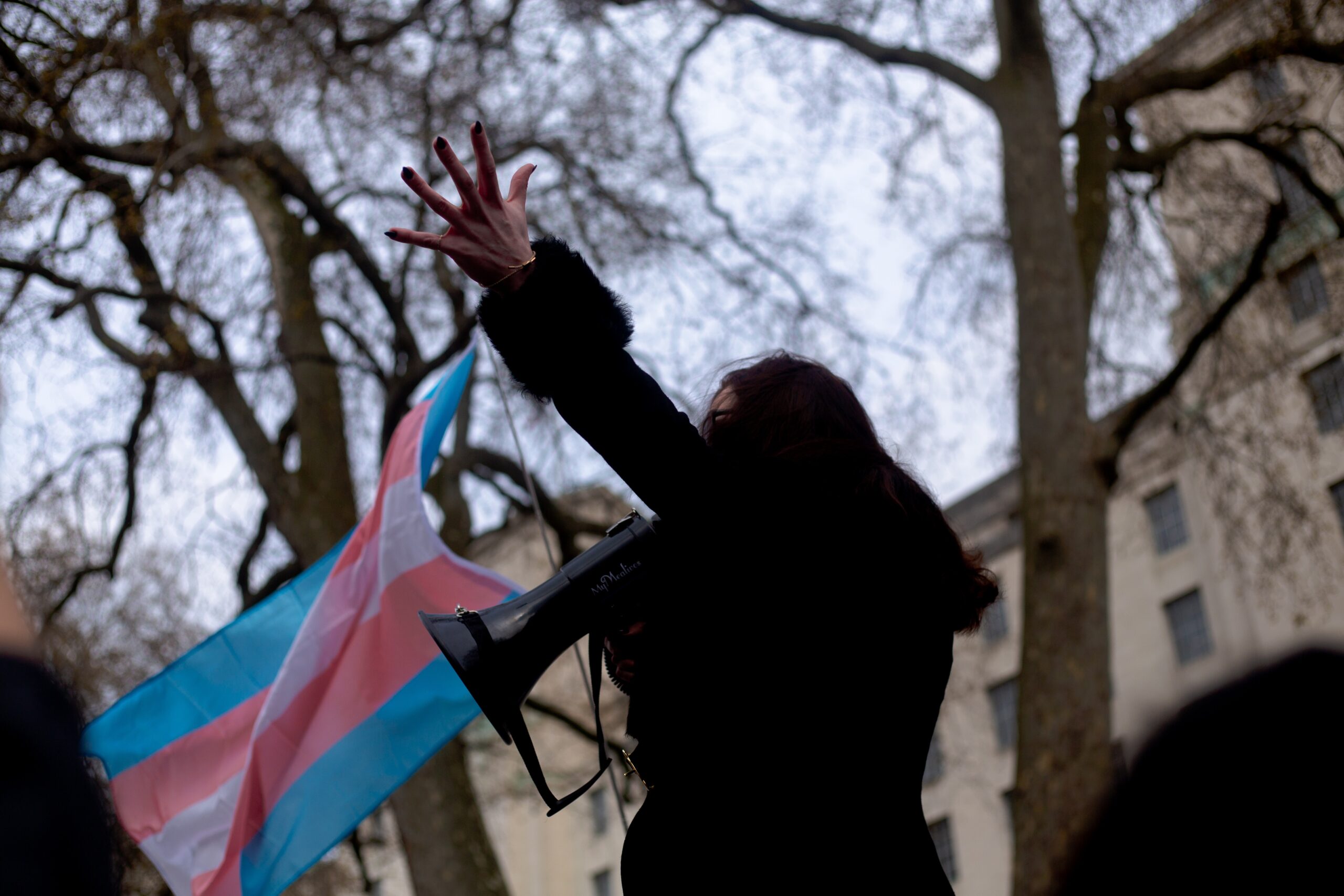Sexual assault affects people of all walks of life, and members of the LGBTQ+ community experience disproportionate rates of sexual victimization. But all too often the experiences and voices of this community are left out of the larger narrative. In some places offering help for abuse, services are only available for survivors who are cisgender or in heterosexual relationships. As a result, the unique experiences of this community are frequently left unseen, unacknowledged, and often times, invalidated.
1 in 2 transgender people are sexually assaulted.
We are currently living in a time where anti-trans “bathroom” bills are sweeping the nation. Proponents of these bills tout an unsubstantiated argument about safety: Male perverts and pedophiles disguised as women (faux transgender people) will troll women’s bathrooms and sexually assault our wives and daughters.
As these laws pass, this imagined victimization happening inside bathrooms at the hands of transgender people is more closely becoming a reality for transgender individuals.
In fact, transgender and gender-nonbinary people in the United States are at greater risk of sexual assault at schools, stores, and other public spaces that deny them access to bathrooms or locker rooms that match their sexual identity, according to a 2019 study.
Transgender people are over four times more likely than cisgender people to experience violent victimization, including rape, sexual assault, and aggravated or simple assault.

Even though the rates of sexual violence are high, the majority of trans people do not or cannot access services following an assault, including:
- Urgent medical care and/or a forensic exam;
- Reporting to law enforcement;
- Getting the help of an advocate;
- Gaining an order of protection or seeking other legal action;
- Seeking long-term mental health care and healing options.
For LGBTQ+ survivors of sexual assault, their identities – and the discrimination they face surrounding those identities – make them hesitant to seek help from police, hospitals, shelters, or rape crisis centers, the very resources that are supposed to help them. In addition to this, many sexual assault services are only available to women– frequently only to non-transgender women. This often means that transgender survivors – transwomen, transmen, genderqueer individuals, and a wide range of other people of trans identities or histories– are unable to receive any services at all.

Often, trans people experience multiple forms of violence and re-victimization throughout their lifespan. From child sexual abuse, to adolescent relationship abuse, to sexual assault and domestic violence in adulthood, trans people face all forms of violence at a disproportionately higher rate.
While also experiencing a higher rate of intimate partner violence, transgender individuals experience unique vulnerabilities to IPV. For example, transgender people might have been rejected by their families or subjected to emotional abuse as children and teens. Research found that 57 percent of transgender people experienced some rejection by family members. This early trauma may make them more likely to experience domestic violence later in life, experts say, and make them less likely to have family members they can turn to for support.
A 2020 study done by the American Public Health Association found that transgender people are two times more likely to be a victim of domestic violence than their cisgender counterparts.
If you or someone you love is looking for LGBTQ-specific resources, the following are nonprofits focused on reaching out to the LGBTQ+ community through education, sharing of stories, support, and activism:
LGBTQ+ sexual assault and domestic violence survivors need acknowledgement and support to heal. Violence and abuse do not discriminate, and survivors are not alone. We see you, we believe you, and we can help.
At Options, we serve all victims and survivors of sexual or domestic violence – regardless of gender identity or sexual orientation. All in need are welcome to access our services.
If you need any additional information, have a question, or a concern, feel free to reach out to Options at our 24-hour toll-free helpline 800-794-4624. You can also reach an advocate via text by texting HOPE to 847411 or click 24-Hour Chat with Options.
Written by Anniston Weber


